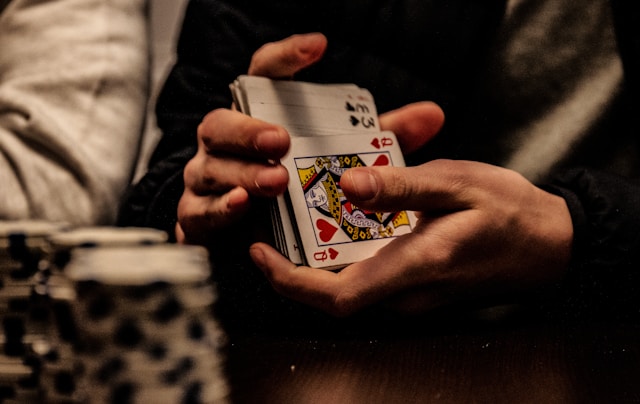Poker is a game of strategy, psychology, and skill, where players employ various tactics to outwit their opponents and claim victory. One such tactic that often stirs controversy and sparks debate among players is known as slow rolling. In this article, we’ll explore the intricacies of slow rolling in poker, shedding light on what it is, how it’s executed, and the etiquette surrounding this controversial move.
Understanding Slow Rolling: A Closer Look
At its core, slow rolling in poker is a strategic maneuver employed to create tension and uncertainty during a critical moment in the game. It involves the deliberate delay in revealing a winning hand, even when the outcome is clear to the slow roller. By prolonging the suspense of the showdown, the slow roller aims to elicit emotional reactions from opponents, capitalizing on their impatience or frustration for tactical advantage.
The mechanics of slow rolling typically unfold during the climactic stage of a hand, where players reveal their hole cards to determine the winner. Instead of promptly revealing their winning hand, the slow roller theatrically hesitates, milking the moment for maximum effect. This calculated pause heightens the drama and intensifies the psychological pressure on opponents, amplifying the impact of the eventual reveal.
While slow rolling is technically within the bounds of poker etiquette, its contentious nature lies in the ethical considerations surrounding sportsmanship and fair play. Critics argue that slow rolling disrupts the spirit of the game, tarnishing the camaraderie and mutual respect among players. Conversely, proponents defend it as a legitimate tactic, asserting that exploiting opponents’ emotions is a fundamental aspect of poker strategy.
In essence, slow rolling epitomizes the nuanced interplay between strategy and psychology in the world of poker, presenting players with moral dilemmas and strategic choices that extend beyond the confines of the cards themselves.
The Mechanics of Slow Rolling: How It’s Done
Slow rolling typically occurs during the final stage of a hand, known as the showdown, where players reveal their hole cards to determine the winner. In a typical scenario, a player who holds the winning hand would promptly reveal their cards to claim the pot. However, in a slow roll, the winning player hesitates, seemingly deliberating their decision, before finally revealing their hand in a dramatic fashion.
The Psychology Behind Slow Rolling: Mind Games at Play
Slow rolling is often employed as a psychological tactic to assert dominance, instigate tilt, or simply to relish the moment of victory. By prolonging the reveal of a winning hand, the slow roller aims to unsettle their opponent, disrupt their focus, and gain a psychological edge at the table. It’s a strategic move that capitalizes on the emotional responses of opponents, exploiting their frustration or impatience to the slow roller’s advantage.
Etiquette and Controversy: Debating the Merits of Slow Rolling
While slow rolling is technically within the rules of poker, it is widely considered poor etiquette and frowned upon in the poker community. Many players view it as disrespectful, unsportsmanlike, and detrimental to the camaraderie of the game. The act of needlessly prolonging the outcome of a hand can sour the atmosphere at the table and breed animosity among players. As such, slow rolling is often met with disdain and criticism, with proponents of fair play advocating for swift and courteous resolution of showdowns.
Navigating the Fine Line in Poker Etiquette
In the realm of poker, where strategy and sportsmanship intertwine, the practice of slow rolling remains a contentious issue. While technically permissible, its execution can elicit strong reactions and disrupt the harmony of the game. As players navigate the intricate dynamics of poker etiquette, it’s essential to strike a balance between competitive edge and respectful conduct. Ultimately, whether to employ the tactic of slow rolling or to denounce it as unsportsmanlike lies in the hands of each individual player, guided by their own principles and values on and off the felt.

